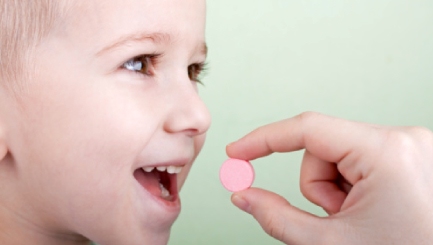Do Your Children Actually Need To Take Supplements?
 Vitamin and mineral supplements are not only marketed towards your wellness; brightly coloured bottles covered in fun characters are designed to appeal to your child too. But just because supplements are targeted to children, does it mean that they do anything for your child’s wellbeing?
Vitamin and mineral supplements are not only marketed towards your wellness; brightly coloured bottles covered in fun characters are designed to appeal to your child too. But just because supplements are targeted to children, does it mean that they do anything for your child’s wellbeing?
According to a 2004 study in Paediatric Annals, about half of all young children and 30% of teenagers have taken dietary supplements, so it seems that supplements have a wide appeal to the public, but do scientists agree? Biochemist Thomas Sherman, a neuroendocrinologist and associate professor at Georgetown University School of Medicine, says, ‘In general, the data regarding the benefits of taking vitamins is weak and the data for children is pretty much nonexistent.’
William “Biff” Rees, head of the Virginia chapter of the American Academy of Paediatrics, adds that it is well-documented that most children can get the nutrients they need from a healthful diet alone, due to fortified milks, cereals and other foods: ‘I’ve been in practice a long time and I can’t remember seeing a vitamin-deficient child who didn’t have some sort of illness underlying the deficiency. It’s really hard to get vitamin-deficient — you almost have to work at it.’
So it seems that healthy children have no need for a daily multivitamin or, for the most part, individual ones. Both of the experts recommend getting children the vitamins they need by focusing on food instead, from well-balanced meals with plenty of fruit and vegetables. However, there are one or two exceptions to the food rule.
Vitamin D is critical for building strong bones and may protect against cancer and some other diseases, but very few foods naturally have high levels of this vitamin. You produce most of the vitamin D through exposure to sunlight, but as we live in a country where the sun doesn’t always come out to play, many of us don’t get enough vitamin D and a 2008 study discovered that roughly 40% of children have inadequate or less than optimal levels.
According to Sherman, ‘We treat the sun like a death star, particularly when it comes to our kids. We slather on the sunscreen, we put on hats and long sleeves and even put shades on strollers, so we’re all chronically deficient in vitamin D.’ Therefore, many experts do recommend vitamin D supplements for kids of all ages, and especially breast-fed babies because breast milk tends to have lower Vitamin D levels than fortified formulas do.
Finally, if your child follows a special or unusual diet, Rees recommends working with your paediatrician to monitor your child’s diet and vitamin and mineral intake, and adding supplements if there are concerns.


Comments are closed.